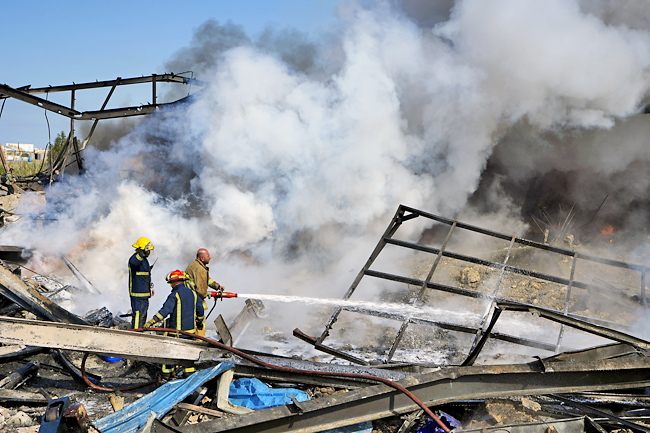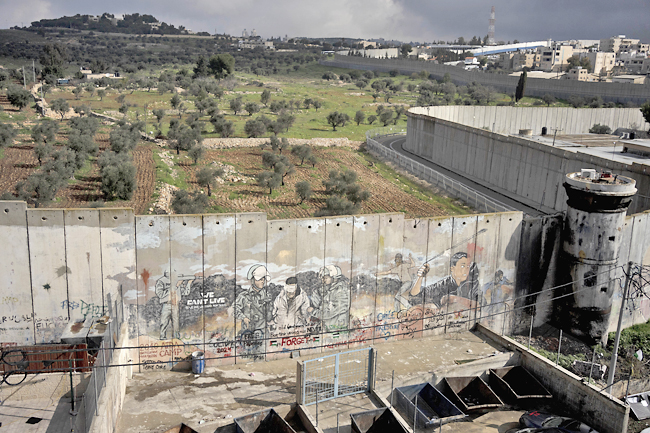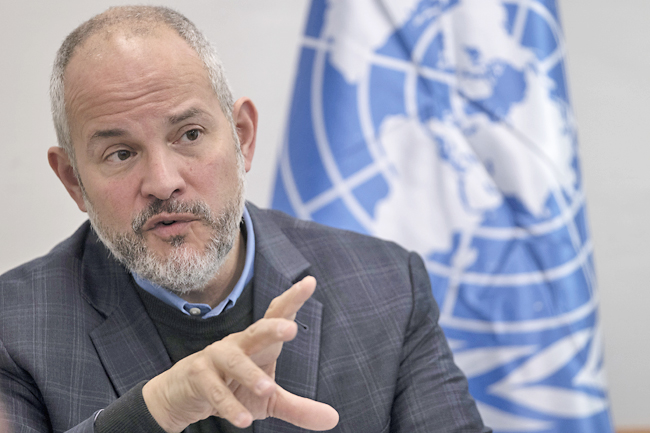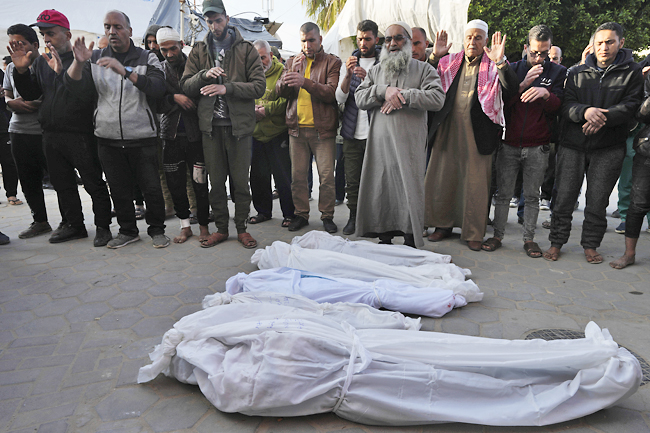RAFAH (AP) – The World Food Programme (WFP) said on Tuesday it has paused deliveries of food to isolated northern Gaza because of increasing chaos across the territory, hiking fears of potential starvation. A study by the United Nations Children’s Fund (UNICEF) warned that one in six children in the north are acutely malnourished.
Entry of aid trucks into the besieged territory has been more than halved in the past two weeks, according to United Nations (UN) figures.
Overwhelmed UN and relief workers said intake of trucks and distribution have been crippled by Israeli failure to ensure convoys’ safety amid its bombardment and ground offensive and by a breakdown in security, with hungry Palestinians frequently overwhelming trucks to take food.
The weakening of the aid operation threatens to deepen misery across the territory, where Israel’s air and ground offensive, launched in response to Hamas’ October 7 attack, has killed over 29,000 Palestinians, obliterated entire neighbourhoods and displaced more than 80 per cent of the population of 2.3 million.
Heavy fighting and airstrikes have flared in the past two days in areas of northern Gaza that the Israeli military said had been largely cleared of Hamas weeks ago.
The military on Tuesday ordered the evacuation of two neighbourhoods on Gaza City’s southern edge, an indication that militants are still putting up stiff resistance.




The north, including Gaza City, has been isolated since Israeli troops first moved into it in late October.
Large swaths of the city have been reduced to rubble, but several hundred thousand Palestinians remain largely cut off from aid.
They describe famine-like conditions, in which families limit themselves to one meal a day and often resort to mixing animal and bird fodder with grains to bake bread.
“The situation is beyond your imagination,” said Soad Abu Hussein, a widow and mother of five sheltering in a school in Jabaliya refugee camp.
Ayman Abu Awad, who lives in Zaytoun, said he eats one meal a day to save whatever he can for his four children.
“People have eaten whatever they find, including animal feed and rotten bread,” he said.
SLIDE INTO HUNGER
The WFP said it was forced to pause aid to the north because of “complete chaos and violence due to the collapse of civil order”.
It said it had first suspended deliveries to the north three weeks ago after a strike hit an aid truck.
It tried resuming this week, but convoys on Sunday and Monday faced gunfire and crowds of hungry people stripping goods and beating one driver.
WFP said it was working to resume deliveries as soon as possible. It called for the opening of crossing points for aid directly into northern Gaza from Israel and a better notification system to coordinate with the Israeli military.
It warned of a “precipitous slide into hunger and disease”, saying, “People are already dying from hunger-related causes.”
UNICEF official Ted Chaiban said in a statement that Gaza “is poised to witness an explosion in preventable child deaths, which would compound the already unbearable level of child deaths in Gaza”.
The report released on Monday by the Global Nutrition Cluster, an aid partnership led by UNICEF, found that in 95 per cent of Gaza’s households, adults were restricting their own food to ensure small children can eat, while 65 per cent of families eat only one meal a day.
More than 90 per cent of children younger than five in Gaza eat two or fewer food groups a day, known as severe food poverty, the report said.
A similar percentage are affected by infectious diseases, with 70 per cent experiencing diarrhea in the last two weeks. More than 80 per cent of homes lack clean and safe water.
In Gaza’s southernmost city of Rafah, where most humanitarian aid enters, the acute malnutrition rate is five per cent, compared to 15 per cent in northern Gaza. Before the war, the rate across Gaza was less than one per cent, the report said.
A UN report in December found that Gaza’s entire population is in a food crisis, with one in four facing starvation.
DROP IN AID TRUCKS
Soon after Hamas’ October 7 attack, Israel blocked entry of all food, water, fuel, medicine and other supplies into Gaza.
Under United States (US) pressure, it began to allow a trickle of aid trucks to enter from Egypt at the Rafah crossing, and in December opened one crossing from Israel into southern Gaza, Kerem Shalom. The trucks have become virtually the sole source of food and other supplies for Gaza’s population. But the average number entering per day has fallen since February 9 to 60 a day from more than 140 daily in January, according to figures from the UN office for humanitarian coordination, known as OCHA.
Even at its height, UN officials said the flow was not enough to sustain the population and was far below the 500 trucks a day entering before the war.
The cause of the drop was not immediately clear. For weeks, right-wing Israeli protesters have held demonstrations to block trucks, saying Gaza’s people should not be given aid. UN agencies have also complained that cumbersome Israeli procedures for searching trucks have slowed crossings.
But chaos within Gaza appears to be a major cause.
OCHA spokesperson Eri Kaneko said the UN and other aid groups have not been able to regularly pick up supplies at the crossing points because of “the lack of security and breakdown of law and order”.
He said the Israeli military has a responsibility to facilitate distribution within Gaza, and “aid piling up at the crossing is evidence of an absence of this enabling environment”.
In a rare public criticism of Israel, a top US envoy, David Satterfield, said this week that its targeted killings of Gaza police commanders guarding truck convoys have made it “virtually impossible” to distribute the goods safely.
Besides crowds of Palestinians swarming convoys, aid workers said they are hampered by heavy fighting, strikes hitting trucks and Israeli failure to guarantee deliveries’ safety.
The UN said that from January 1 to February 12, Israel denied access to 51 per cent of its planned aid deliveries to north Gaza.


